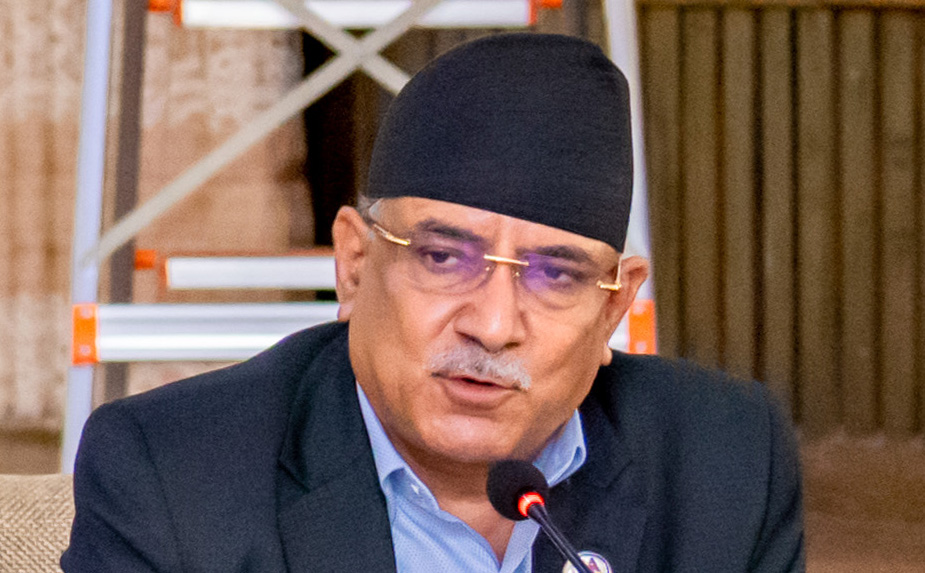Prime Minister Pushpa Kamal Dahal has asserted that writers and artists have an important role in developing a work culture dissuading corruption and promoting good governance.
“The literary and artistic creations should be focused on building the theoretical and cultural base for socialism,” the Prime Minister said, addressing the ‘Pushpalal National Award-2079’ handover ceremony organized by the Ministry of Culture, Tourism and Civil Aviation at the official residence of the Prime Minister at Baluwatar today.
He reiterated that literature and artistic and literary creations should speak the ‘heart and mind’ of the people. “Our art and literary works too should be centred on building the thought and cultural basis of socialism as the Constitution that epitomizes the great sacrifice and dedication of the people has already resolved on building a socialism-oriented state,” said PM Dahal.
Stating that the principles, thought, policy adopted and the guideline given by Pushpalal Shrestha, the founder of the Communist Party of Nepal, to bring the country to the status of federal democratic republic carried big meaning, he said the contribution of the late leader Pushpalal is special not only for Nepal’s communist movement but also for the nation’s entire political movement.
“His (Pushpalal’s) leadership is worth emulating for us all in theory and practice for providing leadership to the communist movement along with the right and scientific ideological course of action, for developing the democratic revolution, for the unity of the communist movement and for building communist values and culture,” said PM Dahal, who is also the Chair of the governing CPN (Maoist Centre).
As he said true tributes to Pushpalal would be only by making resolution to translate the late leader’s guiding principles into practice. He believed that the creativity in the political, history, literature and culture fields would help in the country’s overall development and prosperity and in building a prosperous society.
Chair of the Pushpalal Memorial Foundation and former Prime Minister Madhav Kumar Nepal described Pushpalal as the towering figure of the Nepali politics. “He was not only the founder leader of the Nepal Communist Party, but was also a towering figure of Nepal’s democratic movement,” he said, adding that the autocratic Panchayat political system could be overthrown only after the Nepali Congress and the Communists joined hands as per the conclusion drawn by Pushpalal. “Pushpalal was a far-sighted leader,” he recalled.
Minister for Culture, Tourism and Civil Aviation
Sudan Kirati said the late leader Pushpalal is an outstanding leader of the Nepali communist movement and all should work to fulfill his dreams.
“Some of Pushpalal’s dreams as abolishing the autocratic monarchy, establishing a new democracy and socialism, and a deeper study of the history of Nepali society, have been fulfilled. Establishing socialism has been initiated by issuing a socialism-oriented constitution, but his dream of a deeper study of the Nepali society still remains. We have to fulfill his dream,” Minister Kirati said.
According to him, the present government has started works to fulfill the responsibility of taking Nepal to socialism which remains as one of Pushpalal’s dreams.
Minister of State for Culture, Tourism and Civil Aviation Sushila Shreepali Thakuri said the Award has been managed as an honour to Pushpalal, a leader who has made a notable contribution to ushering Nepal into political change.
Ministry Secretary Suresh Adhikari said the government has been honouring the distinguished persons contributing to the nation’s development, prosperity and preservation.
Honoured personality Kamal Prasad Koirala recalled that he had political relations with Pushpalal from an early age.
The government has been every year presenting the Pushpalal National Award to three personalities in recognition of their contribution to bring a change in Nepali society through study, research and writing on the history of Nepal, creating progressive literature, and political science, philosophy, sociology and economics.
—

